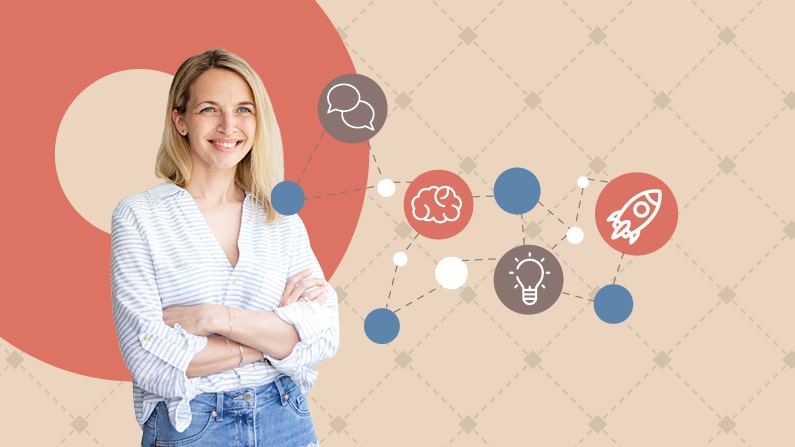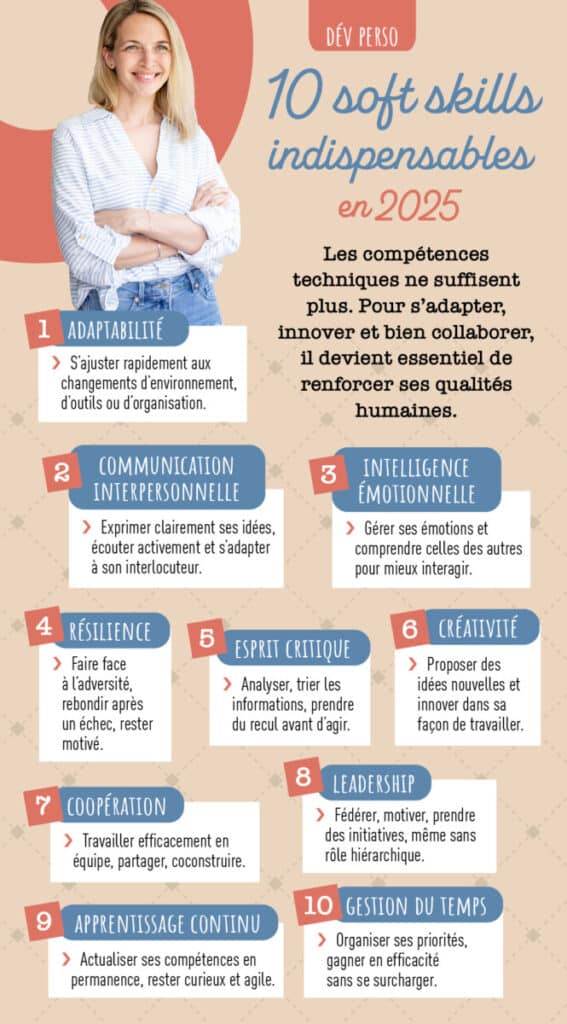In a fast-changing professional world, technical skills alone are no longer enough. To innovate, collaborate and adapt effectively, it is crucial to strengthen your human qualities. Here are the 10 essential soft skills.

1/ Adaptability
It's the ability to adjust your methods, pace and behaviour in the face of change (new organisation, new tools, hybrid environment). Adapting means accepting uncertainty and remaining operational in all circumstances.
2/ Interpersonal communication
Knowing how to convey information clearly, listening actively, rephrasing, asking relevant questions and adapting your speech to the person you are speaking to. Interpersonal communication is an essential skill in a context of remote or intercultural collaboration.
Read also
3/ Emotional intelligence
This soft skill involves knowing how to manage your own emotions, but also understanding those of others. This helps to establish a climate of trust, prevent tension and strengthen cohesion within teams.
4/ Resilience
It's the ability to bounce back from failure, keep calm in the face of pressure and maintain commitment despite difficulties. This soft skill has become indispensable in an unstable and demanding environment.
5/ Critical thinking
Knowing how to analyse a situation, sort information, detect bias and take a step back before making a decision or taking action. This skill is particularly valuable in a world saturated with data and artificial intelligence tools.
6/ Creativity
Coming up with new ideas, imagining novel solutions, thinking "outside the box". Creativity is not limited to the artistic professions: it is essential to innovation in all sectors.
7/ Cooperation and teamwork
Knowing how to work with a variety of profiles, sharing information, listening and co-constructing. This requires openness, trust and a sense of collective responsibility.
8/ Leadership (even without a title)
Mobilising energies around an objective, inspiring, helping others to grow, taking the initiative and assuming responsibility for decisions. Modern leadership, more horizontal than hierarchical.
9/ Capacity for continuous learning
Curiosity, questioning, the desire to learn as you go. In an ever-changing world, the ability to learn new subjects quickly is a strategic lever for employability.
10/ Time and priority management
Organising your activity, distinguishing the urgent from the important, meeting deadlines while preserving your mental workload. This is a prerequisite for remaining effective in complex, multi-tasking environments.





